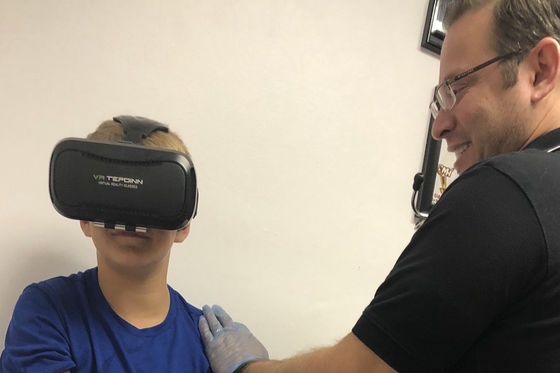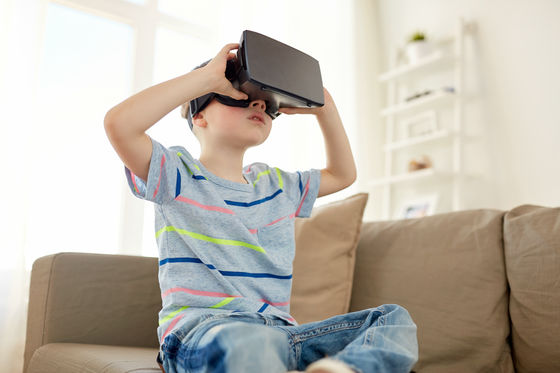Research results that "VR may overcome injection dislikes"

Research results have been reported that children can feel vaccinated safely even for children who do not like injections by relieving the pain and fear that children feel by injecting while experiencing virtual reality (VR) in children.
FAU | Virtual Reality Headset Reduces Children's Fear of Needles
http://www.fau.edu/newsdesk/articles/virtual-reality-study.php
For a child to live healthily,Varieg·measles·influenzaIt is important that we receive vaccination against various viruses properly. However, some of them are scared of the needle of injection, they are crying out loudly. If you dislike injections and do not receive vaccinations, it will also affect diseases that were supposed to be originally infected, there is also the possibility of involving children's lives.
Florida Atlantic UniversityPediatrician doctor Chad Rudnik who is a professor of medical school thinks that fear will be relieved if injection is done while attracting child's attention in VR space and 8 years old child is covered with VR headset and injected The we. As Mr. Rudnik said, the child received injections without fatigue, and her mother was surprised to be "what the hell is going on?"

In response to this result, Mr. Rudnik worked with students of the medical department to realize the feasibility, efficiency, and usefulness of using VR's headset as a way to reduce the fear and pain associated with vaccination for pediatric patients Tested. Mr. Rudnik prepared a VR headset with a smartphone inserted, and vaccinated while subjects from 6 to 17 years of age were watching a 30 second VR movie. At the same time, from facial expressionsFearWhenpainTo measure the level of fear and pain change when using VR headset and when not using it. Also, we conducted a questionnaire survey as to whether parents of subjects seemed to be changing their fear and pain.
As a result, 94.1% of the subjects in pediatric departments were able to confirm the decrease in fear and pain due to the use of the VR headset. Also, in the questionnaire from parents, there were most opinions that fear and pain seemed to be alleviated by the use of VR headset. Furthermore, it seems that more than 90% of patients wanted to use the VR headset again for the next vaccination.

Mr. Rudnik used the test VR headset for $ 50 (about 5500 yen), smartphone application is less than 1 dollar (about 110 yen). The use of the VR headset can be expected as a nonpharmacological means that can be implemented cheaply and easily, for children to actively receive immunization. "It is worth considering the benefits of pediatricians using VR headsets to reduce the rate at which children dislike injections and consequently increase the proportion of children vaccinated regularly, We may expect to potentially lower the morbidity and mortality of vaccinated viruses by the method ".
Related Posts:
in Science, Posted by log1i_yk







